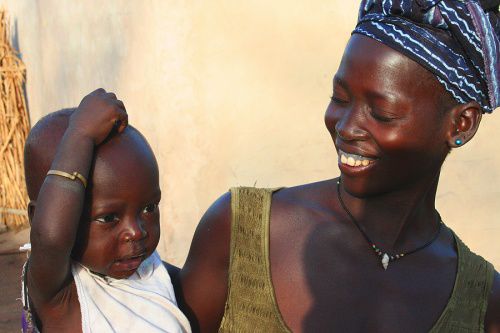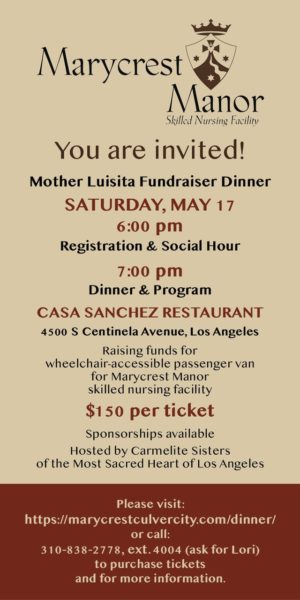A group of bishops from across Africa and Europe met last weekend pledging to redouble their efforts in favor of families, and examining challenges of the 2014 Synod on the Family as well as prospects for the 2015 synod. The bishops who gathered in Mozambique at the May 28-31 Seminar on the Family were from the Symposium of Episcopal Conferences of Africa and the Council of the Bishops' Conferences of Europe (CCEE). The participants included bishops from Africa and eastern Europe, who were among the strongest defenders of the Church's traditional teaching and practice at the 2014 Synod of Bishops, and who are certain to promote Christian values and to counter any initiatives that would go beyond Catholic teaching. “The human person does not realise his or her freedom by separating themselves from any bond, from any relationship with the past, with the future, with humanity and with other people, but by accepting an order of personal relationships which help the development of the individual human person, encouraging the realisation of their own freedom,” read a May 29 message to the assembly from Cardinal Peter Erdo of Esztergom-Budapest, who is president of the CCEE. The meeting's closing message included the bishops' pledge to redouble their evangelization efforts through a more focused pastoral care of families in all their dioceses, and to instill vision of the family not only in their faithful, but also in every person of good will. They showed their pastoral approach by first commending the “many happy families” and expressing gratitude for them, and then adding that “at the same time, as Pastors, we are close to those, who though married, are living in some marital crisis.” “We suffer a lot with broken families; with poor families that hardly make it through the day. We are touched by people afflicted with illness and who cannot be taken care of for lack of financial means, or lack of professional healthcare,” the bishops' message emphasized, also reflecting on the challenges which illness, substance abuse, war, migration, and human trafficking pose to families. The bishops added, “Our hearts are broken, when we notice young children, orphaned, abused, without education, many of whom live alone on the streets, and teenagers lured into violence, crime, prostitution, etc. We hear of so many mothers, who desperately see no future for their unborn child, and so resort to abortion. What a pain this must be!” Bishops also expressed worry over “some of the negative influences within the media.” They then turned again to the “many families that live a life of selflessness and sacrifice, being generously open to new life, and giving themselves without conditions to other family members, and in that way really finding fulfillment in themselves,” commending the families “where faith in God and family values are lived and passed on; where there is unconditional acceptance and mutual cooperation, room for mistakes, fraternal correction and place for forgiveness and reconciliation; where every child is welcome, with whatever traits and disabilities.” Reflecting on their mission as bishops, the group prayed that the Holy Spirit will “guide the thoughts and deliberations of the Fathers of the coming Synod … May the ideal family never be totally eclipsed by our human weakness and sin!” “As bishops, we will double up our efforts to let this light of Christ shine, by increasing our pastoral care of the family, by preparing our youth for Holy Matrimony, by accompanying families with or without children, by taking care of the elderly and the divorced in whatever circumstances they live.” The seminar included 35 participants, of whom 22 are bishops. Participants from western Europe included Archbishop Francois Garnier of Cambrai and Archbishop Ludwig Schick of Bamberg. The meeting also included contributions from Mr. and Mrs. Frederick Olweny of Kenya, from the Africa Family Life Federation. Speaking at the opening of the seminar, Archbishop Gabriel Mbilingi emphasized the challenges facing the Christian vision of the family, urging that the 2015 Synod must “rediscover the saving plan of God, according to the teaching of Sacred Scripture and the Church, in the pastoral action in favour of the families, the values of marriage and the family to be put into practice in the life of young people and spouses, helping them to appreciate the greatness and the beauty of the gift of indissolubility, in order to arouse the desire to live it up together and build more and more.” Archbishop Mbilingi called the relationship between doctrine and mercy a “great challenge,” and suggested that the upcoming synod fathers “shall seek to help the faithful in relation to people who have not yet reached a full understanding of the gift of love of Christ, by showing an attitude of acceptance and trustful confidence, without ever giving up the proclamation of the demands of the Gospel.” The Angolan archbishop's address was followed by the message from Cardinal Erdo, which focused on the negative consequences of secularization and individualism, “which separates the human person from his / her natural environment, from the communities represented by the family and society.” He noted the positive role of families who “encourage each other in a mutual fashion,” praying together and discussing the faith, commenting that “these communities really seem to be a sign of the times … we must make our communities more aware of the values of this new and strong phenomenon.” Cardinal Erdo continued, saying that “the human person is realised in complementarity with others, and the family is its most essential expression. The history of humanity shows that sin can close us in on ourselves and create many tensions and divisions. But God, as Pope Francis frequently reminds us, does not allow us be crushed by human sin, and Christ comes to meet every person to save them and lead them back to their true humanity. Christ — who has taught us the full truth about the human person, as well as about marriage and the family — always remains the unique reference point for our faith and for our lives.” Continuing in this line, the cardinal said, “we are not called to look at the world simply with our philosophical categories and only on the basis of empirical personal experiences or starting from sociological polls or studies, but we are disciples of Christ, so we must look to Christ, we must listen to his voice through history, through the Sacred Scripture, through the testimony of the community of the Church.” Cardinal Erdo's comments can be seen as a salvo against the program of numerous bishops from western Europe — such as those of Germany — who are suggesting an opening to the acceptance of same-sex unions, and admission of the divorced and remarried to Communion. While Cardinal Erdo urged looking first to Christ — rather than empirical personal experiences or sociological studies — the German bishops' response to the preparatory questionnaire for the 2015 synod noted that “the vast majority” of respondents expect the Church to accept homosexual relationships on the basis of a “moral theological evaluation which takes account of pastoral experiences and of the findings of the humanities.” Cardinal Erdo concluded his address saying, “Thus we see the direction: every real development in the Church draws us closer to Christ, both in faith and in daily life.”

